
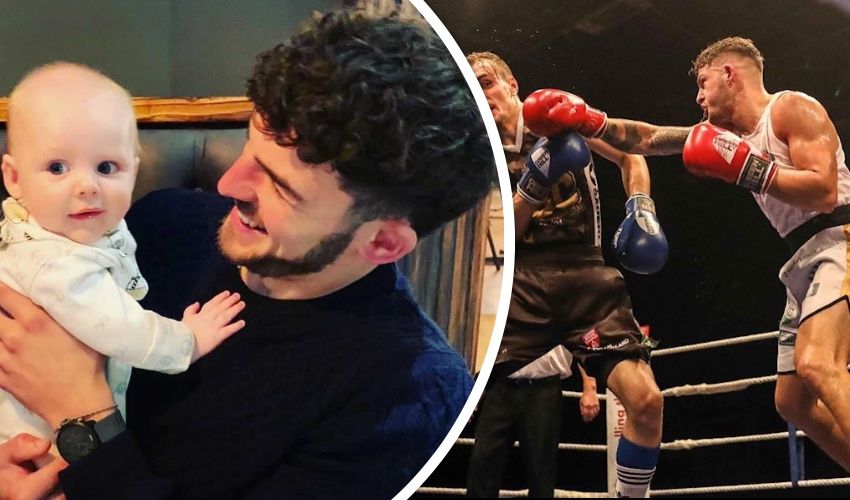

When I met Billy Le Poullain recently, the introduction a mutual friend gave was: “This is Billy, obviously." While I now know that most islanders, particularly sports fans, will likely be appalled, I had to confess to ‘obviously Billy’ that I didn’t know who he was.
I remained unclear on who Billy was after he said that he was a carpenter, and it was only because we were waiting to see the legendary Sugar Ray Leonard that I asked Billy whether he had ever boxed. With the benefit of hindsight, and a Google search revealing he is undoubtedly one of the best boxers the island has produced, I sat down with Billy to find out more about the man in and out of the ring.
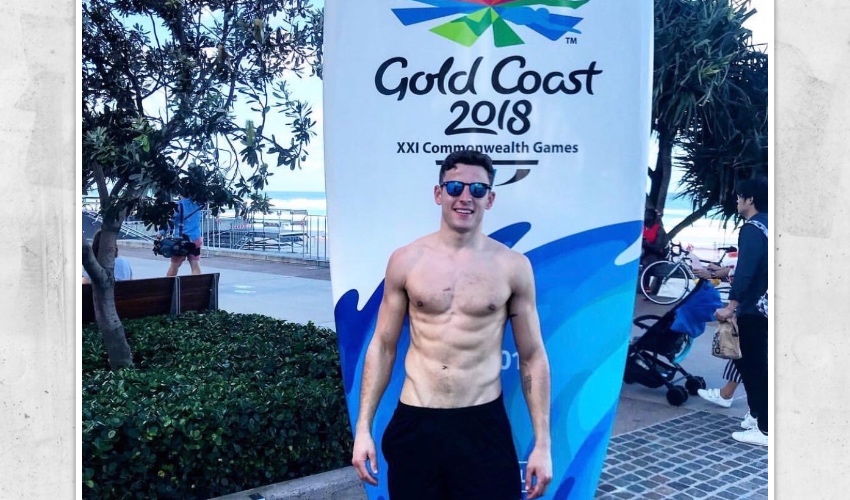
Pictured: Billy competed in the Commonwealth Games in Australia in 2018 and will be competing again this summer.
I was surprised to learn that Billy wasn't an immediately talented boxer.
“I started boxing when I was nine, after my family moved from Birmingham to Alderney. I wasn’t very good at it, and I lost my first five fights,” he said.
“It was probably only down to my ego that I carried on with boxing. I was getting a lot of sick from the lads at school so I had a chip on my shoulder and felt like I had something to prove.
“I stuck with it, trained really hard and then won my next 12 or 13 fights in a row.”
Billy said that, despite his many achievements in the sport, winning his first fight at 14 has been his proudest moment.
“I had taken a few months out after losing my first two fights, then I lost another three in quick succession. I had been training so hard and I was getting better, but it wasn’t showing in my performances,” he said.
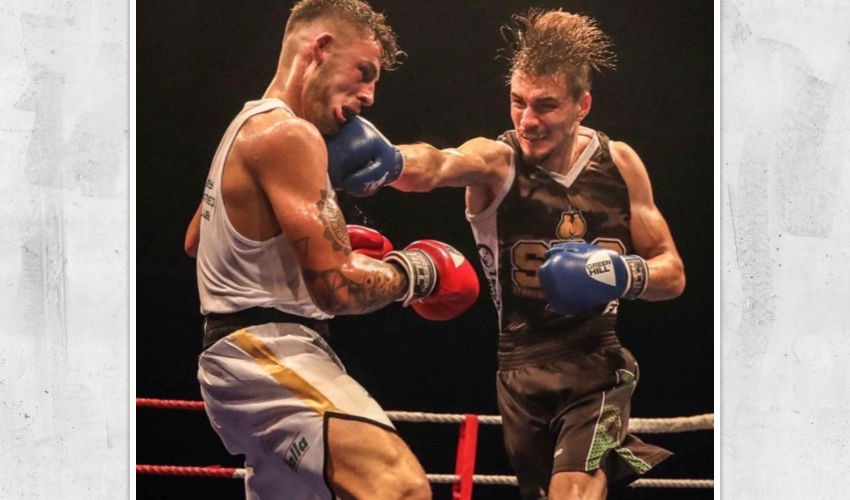
Pictured: Billy said that he has only recently started to think about the potential health problems associated with boxing.
Billy continued: “That sixth fight, I had learned to harness the nerves and the negative energy I was carrying and it made a difference. It was the tipping point where my confidence drew and everything snowballed from there.
“Winning that first fight meant the most to me on a personal level, it meant more to me than any other because it shaped me.”
Billy has competed in the UK, Portugal and Australia and has his debut on the England team in February this year.
“That was definitely a proud moment for me. The referee stopped the fight in the third round,” he said.
“I’d given my opponent two counts (two clean punches where the opponent’s head is knocked back) and he was cut from punches in the second round so that was the undoing of him.”
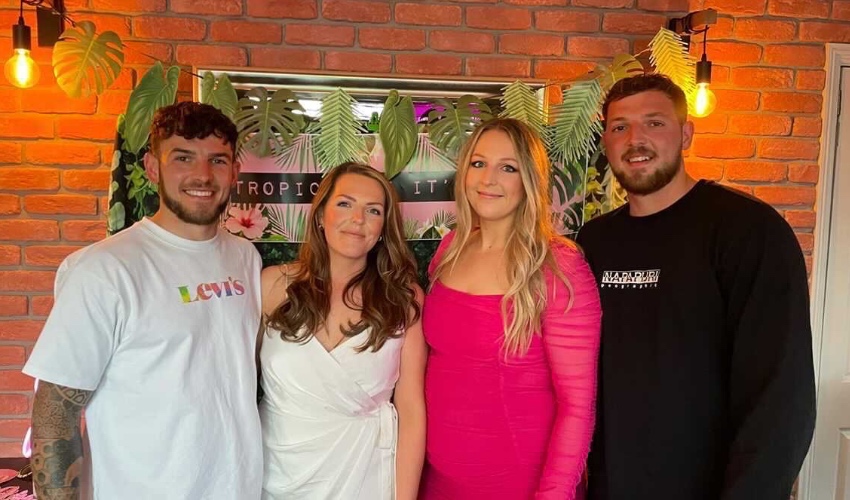
Pictured L-R: Billy with his siblings, Kim, Katie and Daniel. He says they all get along well and are close.
Billy said that he hadn’t given much consideration to sustaining injuries in the past.
“It’s only been in the last year that I’ve started to think about the physical injuries. When you learn about CT scans and concussions that boxers and NFL players have later in their careers it does make you think,” he said.
“I’ve not had a scare and never been knocked out, so I’ve never needed to address whether I need to stop.”
Despite being more aware of the potential long-term impact of injuries, it has not affected his performance.
“I’m still going into the ring wanting to hurt my opponent and not being bothered if they hurt me,” he said.
“If you’re going to box, you need to have a nasty streak, you can’t just go in and dance around. If you let being hurt or hurting someone burden you then you’re in the wrong sport.”
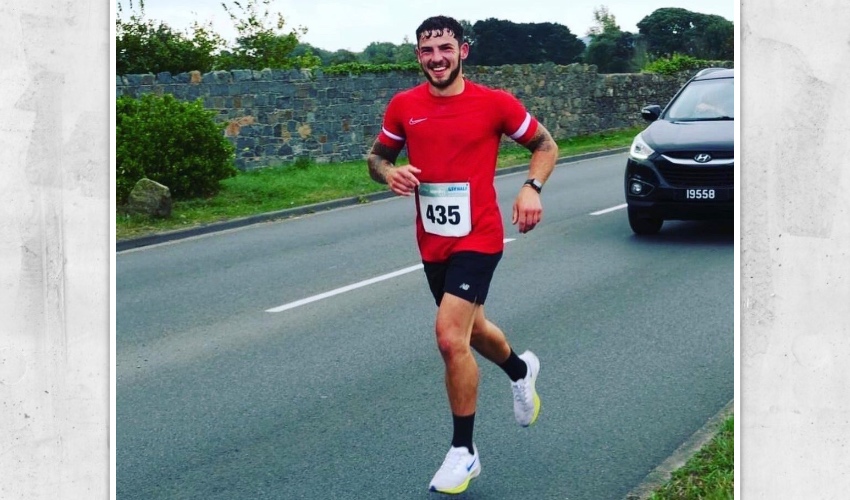
Pictured: Billy runs three times a week as a supplement to boxing, but said if he stopped boxing he would keep running and going to the gym.
Admittedly, it is only in the last year that I have started to consider sport to mean more than “playing games”. I have tried to get my head around the sentiment expressed by my partner that sportspeople will remember their losses more than their wins.
I considered this to be a rather bleak mentality, but Billy agreed that it is “absolutely true”.
“You either win or you learn. If you take a loss and you don’t learn from it then you’re never going to improve. Losses are lessons,” he said.
“If I get beat then I will analyse why I lost. Equally, if I win, I will still analyse what I could do.
“I am probably too self-critical because I’m never satisfied. Even if I knock someone out in 30 seconds, if I got caught with one punch in those 30 seconds then it would annoy me more than how I would be to have got the knockout.
“It doesn’t take away from the win, but I always want everything to be as clean cut and perfect as possible before I’m happy. If you’re happy with something then you’re never going to improve.”
Despite his strong views on boxing perfection, Billy said that it doesn’t burden him.
“I can pick things up and put them down. If I lose, once I’ve analysed what happened, I won’t carry it with me.”
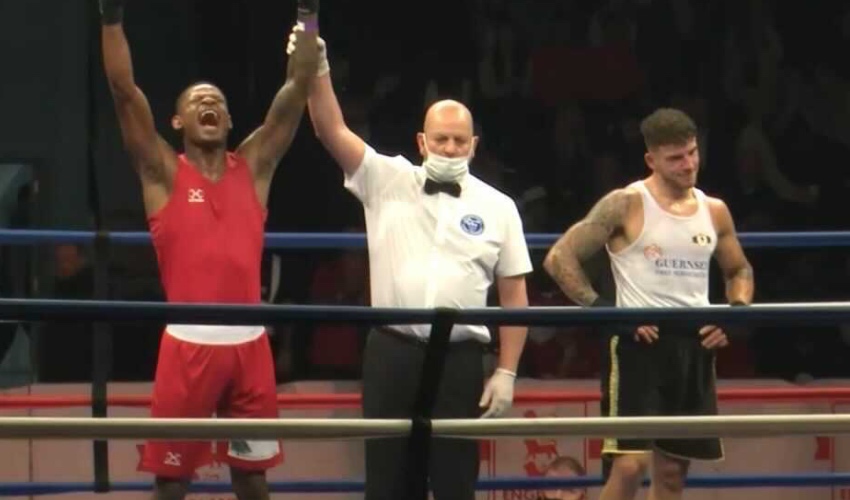
Pictured: Billy has a mentality that "losses are lessons".
Billy came across as surprisingly self-effacing with an acute awareness of the trappings of the male ego, which he credits to personal development and therapy.
“I had a huge ego when I was younger but now I can see that when I have been in viscous cycles and things have been going wrong, that I was the common factor in those issues. I had to learn to take ownership of that,” he said.
“A lot of men carry their egos too much and are worried about their image and don’t wear their hearts on their sleeves.
“I’ve become more mature and socially aware over the last three or four years. I was quite naïve in my teens and early twenties. Now I think it makes you more of a man to be open.”
Billy has struggled with mental health issues.
“Through the pandemic I wasn’t boxing, and I was drinking a lot. I’m not usually a big drinker because I’m disciplined and dedicated to boxing. I was having drama with people on nights out and that’s not who I am.
“I was in a depression, and it got to a point where friends were saying I needed to sort my life out. I needed to be told a few times before I saw it for myself.”
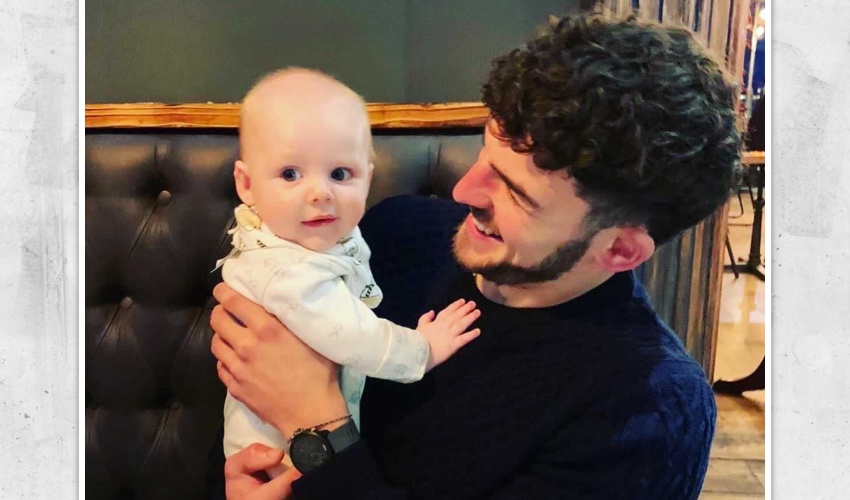
Pictured: Billy with his nephew, Albie, who is now nine months' old.
At the recommendation of his friends, Billy tried eye movement desensitisation and reprocessing therapy (EMDR) therapy.
“I reached a point where I was unhappy in every aspect in my life and needed to address it,” he said.
“I got my health in shape, and I spent less time with people who weren’t adding anything to my life they were just taking and draining me. I started living a clean life, eating healthy, not drinking and did therapy for three or four months.
“EMDR was amazing. Even in the first session, where we didn’t do EMDR, I felt like talking had helped. He [Billy’s therapist] didn’t tell me anything I didn’t already know, but it made a difference to have it coming back to me with an opinion that I respected because I had heard good feedback about him from people whose opinion I trusted.”
Through his personal development journey, Billy has reflected on his relationship with his younger brother, Daniel.
“When I was seven and Daniel was three, we were in the car in Birmingham and he was arguing with my mum,” recalled Billy.
“Daniel jumped out the car while my mum was going at 30mph, he was ripped under the car and my mum ended up running over his chest. He was also tangled in the seatbelt, which had been dragged out with him."
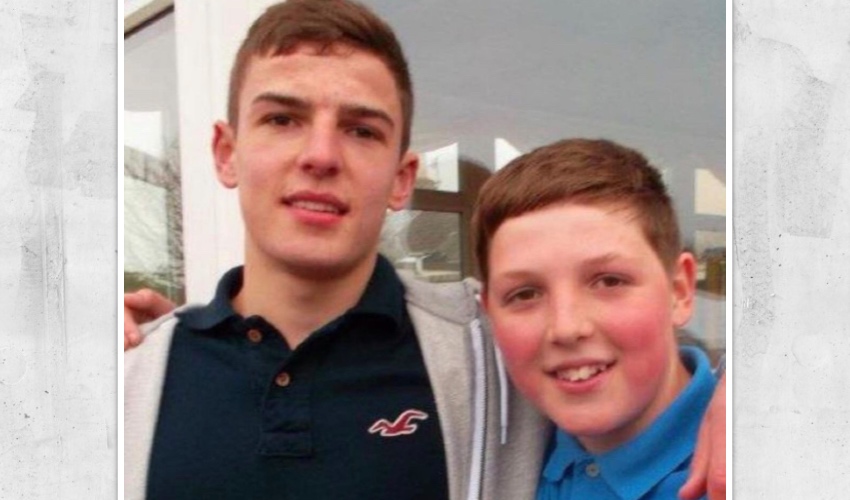
Pictured: Billy said he has always been protective of his younger brother, Daniel.
Billy continued: “Luckily, someone coming past just scooped my brother up, got us all in his car and put his foot down and got us to a doctor’s surgery that was very close.”
Daniel needed arterial bypass surgery and was in hospital for six weeks before making a full recovery.
“I didn’t think that that experience had had a lasting impact on me until I started having therapy,” said Billy.
“I think it really affected my relationship with Daniel. I would try to dictate his life because I always want what’s best for him, but I would get annoyed with him for doing the opposite of what I said. I can see that he didn’t want to be told what to do.
“I think the therapy has helped a bit and I advise him what to do less and I listen to him more. I’ll always be protective over him though so it’s difficult, but it doesn’t burden me like I used to.”
Billy also has two older sisters, Kim and Katie, and has a niece and nephew.
“Being an uncle is amazing. I wasn’t really interested in babies or holding them until my best friend had a little girl and ever since then I’ve loved kids and going round to see them,” he said.
“When I hear of other people’s relationships with their family, I feel lucky that I’m so close to mine. I speak to my mum every day and although my parents are separated, they get on well together.”
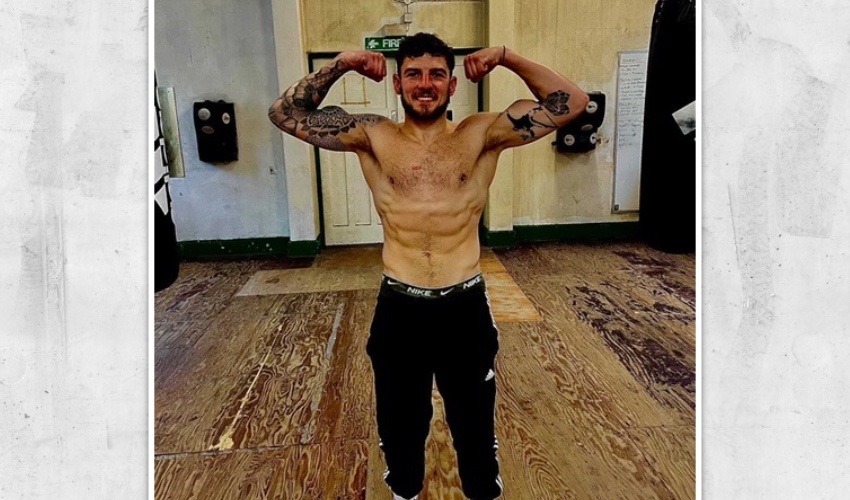
Pictured: Billy said boxing has taught him discipline and commitment to a healthy lifestyle.
Billy said that his close relationship with his sisters has helped him in his relationships.
“Growing up with sisters definitely helped me to understand women more. If I’m being unreasonable in a situation in a relationship, I’ll bounce things off of my sisters and they’ll give me advice,” he said.
“Personality wise my sisters are total opposites from each other. Katie is chilled out and protects her energy, whereas Kim is much more like me and always on the go.
“I’m similar to Katie in the sense that I enjoy my own company, I think I’m a middle ground between the two of them.”
Billy has fond memories of his childhood.
“My parent didn’t push me into anything, but she always made sure I did everything I wanted to and tried any sport I wanted and didn’t miss out on opportunities,” he said.
“When we lived in Birmingham I went to gymnastics from the ages of six to nine and I was invited to join the feeder group to the city team.
“I was playing football at the same time; I’d go to gymnastics then straight to football, so I needed to choose one and I chose football.
“Looking back I wish I stayed doing gymnastics because I think I would have enjoyed it more than football in the long term. Although there wouldn’t have been the availability when I moved to Alderney.”
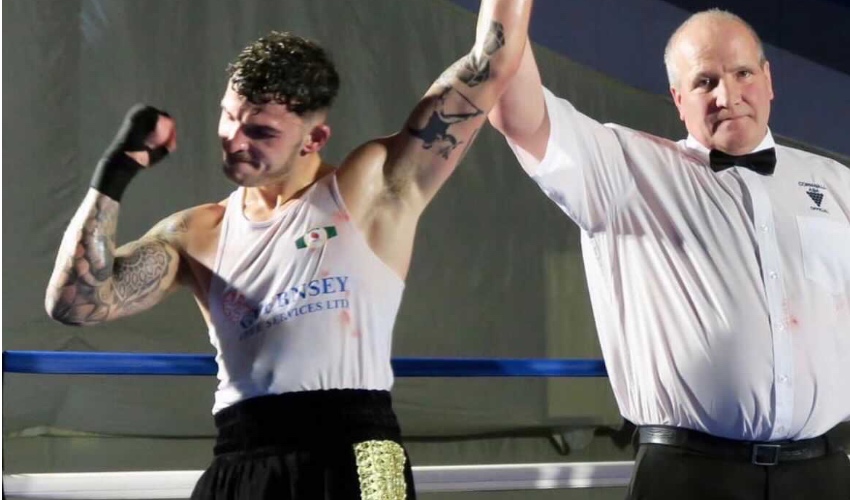
Pictured: Billy has won 61 out of his 84 fights to date.
Although he describes himself as a good team player, an appeal of boxing for Billy is that he is on his own.
“I like the competitive edge of boxing. You’re in the ring with someone who thinks they can beat you and you think you can beat them,” he said.
“It’s about proving you’re tougher and smarter than your opponent. If I don’t win, there is no one I can point the finger at, it’s all on me.
“When I played football it was always people screaming at each other and usually the ones screaming the most are the ones doing the least amount of work. In boxing there is no one else to blame.”
With it being evident that I am the exception, not the rule, in not knowing about Billy the boxer, he said that he enjoys the public recognition.
“I like that I’m known for boxing because it’s almost a respect and appreciation for all the years that I’ve sacrificed,” he said.
“Although it’s not someone directly saying ‘well done for being committed for 16 years’, it’s because of that commitment that I am recognised and it’s a confidence booster.”
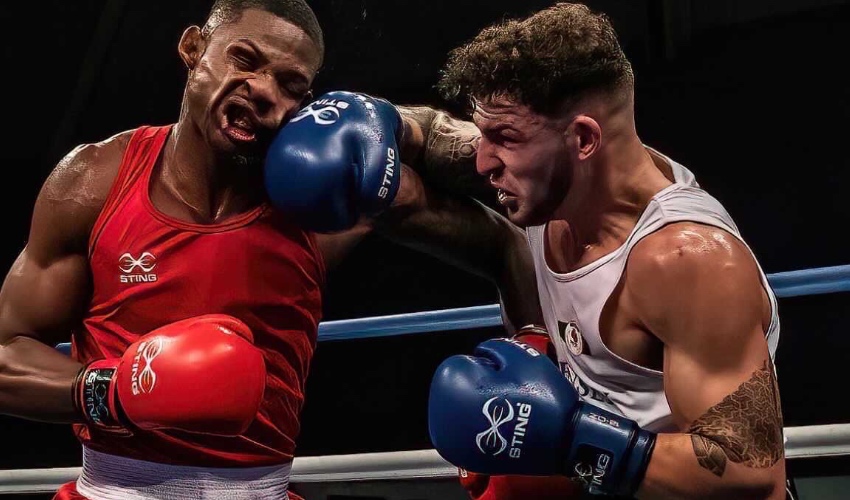
Pictured: Billy said that boxers "need to have a nasty streak".
While he enjoys the acknowledgment, Billy said he has moved on from needing external validation.
“Boxing has taught me discipline, dedication and resilience and initially it allowed me to gain external validation and confidence in my own abilities,” he said.
“I don’t need that validation anymore; I don’t do anything for anyone’s approval.
“Too many people are people pleasers and will mold themselves into who they think people want them to be but deep down they’re not happy.
“I’d rather be hated for who I am, than liked for who I’m not.”
Comments
Comments on this story express the views of the commentator only, not Bailiwick Publishing. We are unable to guarantee the accuracy of any of those comments.